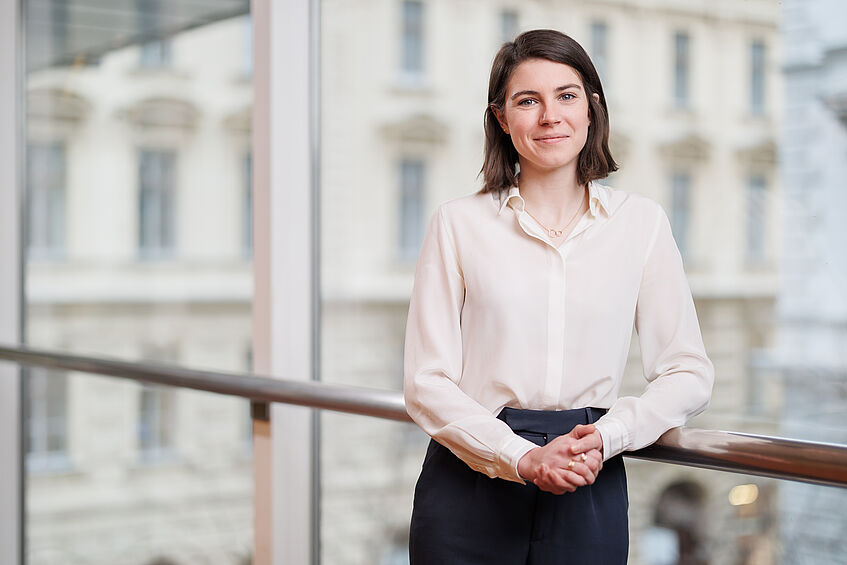Editorial by Theressa Henne and Clara Saillant (UNIVIE)
The Value of Health Data – Results from the CPDP Moot Court
“Honoured judge,
We stand in front of your Court today to seek justice and clarity on a matter that is of great concern to our society. My company has been alleged of unfittingly rewarding our partners for their contribution to the development of our AI application. In light of the ambiguous wording of the newly adopted European Health Data Space, we strive for legal clarity concerning the question by which means – financial or of other kind – the provision of data for the training and testing of the AI technology should be rewarded.”
In the near future, we might witness a court case similar to the one described above, in which a health technology company and a clinical data provider turn to courts to resolve a highly challenging matter. At the core of this fictional court case lies the question of what value we assert to health data in the process of AI innovation, and by which means we incentive the provision of such data.
The awaited framework of the European Health Data Space (EHDS) is expected to provide answers to this question. The latest draft of the EDHS already sets the general direction by outlining that data providers may charge fees for the provision of data that is derived from the cost resulting from the collection, enrichment and provision of the data, including the processing of the request.
Notably in the proposal is the criteria of the compensation. Indeed, only the human labour and technical resources put into the data are taken into account. A calculation based on the value generated by the data and taking into consideration future innovations would result in much higher sums paid to the data provider. Hence, according to the narrative of the existing draft, the actual value creation is considered to take place as soon as the data has been handed-over to the data provider, who “reaps” the data’s value by employing it for the means of the development of AI technology.
Two questions arise from the current debate:
1) If accepting the “compensation approach” of the current proposal, how exactly shall the fee for collecting, enriching and providing data be determined? Can a data provider also include long-term investments in technical equipment or additional staff in the fee?
2) If the “compensation approach” is challenged, how to shape a governance framework, acknowledging value creation from data providers in order for them to receive a share on such created value ?
The proposal of the European Health Data Space is only in drafting stage, therefore many open questions remain. In particular, it is unclear whether the EDHS framework would out rule any alternative data sharing frameworks, so that all sharing of health data in the EU would need to be conducted via the EDHS.
Until clarity is provided by the final legislative text and preceding Court rulings, the question of how to compensate for the arising costs or reward data providers for the valuable contribution in the development of AI technology remains in the void. This issue is also of crucial concern to the ProCAncer-I project, which is currently discussing an internal policy on the matter. In order to reach out to the community of lawyers and health-professionals, who are facing similar challenges, UNIVIE conducted a workshop at the Computer, Privacy and Data Protection Conference (CPDP) which took place on 25th of May in Brussels. In the workshop, the participants were witnesses to the fictional court case outlined above and could engage with experts from the Consortium and beyond in order find possible solutions.In a nutshell, our fictional court case’s judge ruled that it needs to be clarified between the parties whether the fee paid is considered a compensation for the costs or a share of profit. If the first is the case, the number of patients and the costs incurred by providing the data must be taken into consideration in order to determine the compensation. If the latter is the case, the judge refers the case to the CJEU for preliminary ruling on how to share the profits.
We thank
María José Alarte Aceñero, Head of Legal at Quibim for her marvellous performance as the defendant to the case, namely a Spanish AI technology company
Aline Blankertz from Wikimedia Germany for representing the interest of the patients in front of the fictional court
Daniele Regge, Associate Professor in Radiology, for his stunning performance as the claimant to the case, namely ContraCancer Unit of Turin Hospital and
Lorraine Maisnier-Boché from McDermott Will & Emery for playing the judge to our Court case, who had undoubtedly the most difficult task of deciding on the matter


